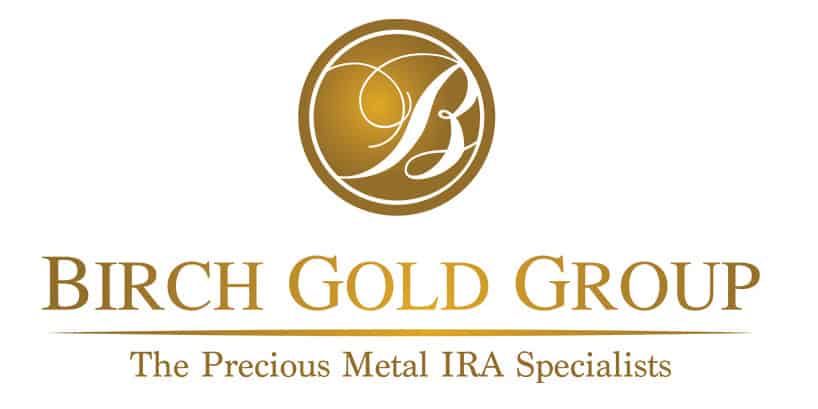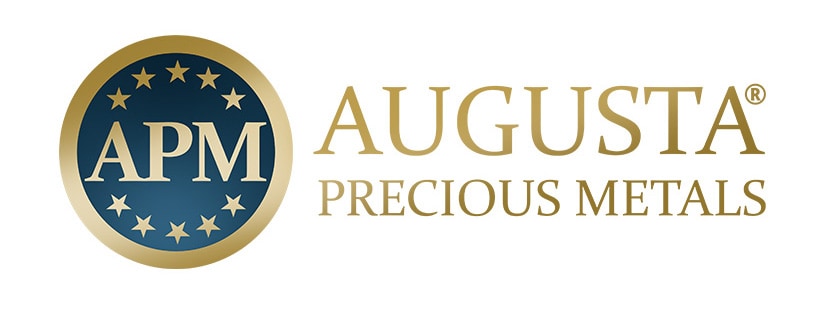Tax implications of withdrawing from Gold IRA
Tax Implications Of Withdrawing From Gold Ira
If you are considering withdrawing from your Gold IRA, it is important to understand the potential tax implications. While there may be various reasons for wanting to withdraw from your Gold IRA, such as needing cash for an emergency or wanting to invest in a different asset class, it is crucial to consider the tax consequences of doing so.
Investing in a Gold IRA can offer significant tax benefits, including the ability to defer taxes on gains until you make withdrawals during retirement. However, withdrawing funds prematurely can result in penalties and taxes that could significantly impact your overall return on investment.
Secure your wealth by diversifying in precious metals through an IRA! Safeguard against inflation and global financial instability for long-term value. Act now for financial security – start your precious metals IRA today!
In this article, we will explore the tax implications of withdrawing from a Gold IRA and provide strategies for minimizing your tax liability. It’s essential to consult with a tax advisor before making any decisions regarding your Gold IRA withdrawal to ensure that you are fully informed about all the potential consequences.
Key Takeaways
– Withdrawing prematurely from a Gold IRA can result in penalties and taxes that impact overall return on investment, potentially pushing one into a higher tax bracket.
– Consulting with a tax advisor is crucial before making any decisions about Gold IRA withdrawal due to strict rules and regulations.
– Investing in a Gold IRA offers tax benefits, including deferring taxes on gains until retirement, resulting in substantial tax savings.
– Required Minimum Distributions (RMDs) are regular withdrawals required by the government from your retirement account, failure to withdraw can result in a penalty of up to 50% of the missed distribution.
Tax Benefits of Investing in a Gold IRA
Investing in a Gold IRA not only provides portfolio diversification but also offers significant tax advantages that can potentially increase your retirement savings. One of the primary benefits is that gold is considered a long-term investment, and therefore, you may be eligible for lower capital gains taxes if you hold onto it for at least a year.
Additionally, any profits made from selling your gold would be taxed as a capital gain rather than ordinary income, which could result in substantial tax savings. Another benefit of investing in a Gold IRA is that it allows you to defer paying taxes on your investments until you start taking distributions during retirement.
This means that any profits earned within your Gold IRA will grow tax-free until the time comes for withdrawals. The deferral of taxes can make a significant difference in the amount of money you have available during retirement. However, it’s important to understand the tax implications of withdrawing from a Gold IRA before making any decisions.
While there are several advantages to investing in this type of account, there are also specific rules and regulations regarding withdrawals and taxation. Therefore, it’s essential to consult with a financial advisor or tax professional who can help you navigate these complexities and ensure that you’re making informed decisions about your investments.
Understanding the Tax Implications of Withdrawing from a Gold IRA
As you’re considering accessing funds from your precious metals retirement account, it’s important to understand the impact on your financial situation.
Withdrawing from a Gold IRA may result in tax-deferred gains becoming taxable income. This means that the amount withdrawn will be added to your annual income and could push you into a higher tax bracket, resulting in increased taxes.
Additionally, early withdrawal penalties may apply if you withdraw before reaching age 59 ½ years old. The IRS imposes an additional 10% penalty tax on top of the regular income tax for early withdrawals. However, there are some exceptions to this rule, such as using the funds for medical expenses or purchasing a first home.
Therefore, it is crucial to consult with a tax advisor before making any decisions about withdrawing from your Gold IRA. They can help you understand the potential implications of taking money out of your account and provide guidance on how best to minimize any negative impacts on your finances.
Consult with a Tax Advisor
Before making any decisions about accessing funds from your precious metals retirement account, it’s crucial to seek guidance from a financial expert such as a CPA or tax consultant. These professionals can help you understand the tax implications of early withdrawal and provide necessary advice on tax planning for future withdrawals. Withdrawing from your gold IRA without proper consultation could lead to unexpected tax consequences.
To emphasize the importance of seeking professional advice, consider this example table:
|
Withdrawal Amount |
Tax Rate |
Estimated Taxes |
|---|---|---|
|
$10,000 |
25% |
2,500 |
|
$50,000 |
35% |
$17,500 |
|
$100,000 |
40% |
$40,000 |
As seen in the table above, the higher the amount withdrawn from your gold IRA, the higher the estimated taxes owed. This underscores why consulting with a tax advisor is essential before making any significant moves regarding your retirement account.
Accessing funds from your gold IRA has significant tax implications that require careful consideration and planning. By working with a financial expert who specializes in taxation issues related to retirement accounts like yours and understanding potential taxes applied to early withdrawal amounts using tables similar to those presented here; you can make informed decisions about how best to manage your finances while ensuring that withdrawing doesn’t negatively impact future plans. In the next section, we’ll explore some common reasons for withdrawing from a gold IRA.
Reasons for Withdrawing from a Gold IRA
If you’re considering taking funds out of your retirement account, there are several reasons why you might choose to withdraw from a gold IRA. Here are four possible reasons:
1. Emergency expenses: Sometimes life throws unexpected curveballs, and you may find yourself facing significant medical bills, home repairs, or other urgent financial needs that require immediate attention. In these situations, withdrawing funds from your gold IRA may be a viable option.
2. Investment opportunities: Perhaps you’ve identified an investment opportunity that requires a substantial amount of capital upfront and offers the potential for high returns in the long run. If so, withdrawing funds from your gold IRA could provide the necessary funding to seize this opportunity.
3. Diversification: While investing in gold can offer many advantages, it’s important to maintain a diversified portfolio. Withdrawing some funds from your gold IRA could allow you to invest in other assets or securities that complement your existing holdings.
4. Retirement lifestyle changes: As you approach retirement age, your lifestyle goals and financial needs may shift. If you anticipate needing more income during retirement than originally planned or want to leave behind a larger inheritance for loved ones, withdrawing funds from your gold IRA could help achieve these goals.
As with any financial decision involving taxes and investments, it’s crucial to consult with a tax advisor before making any withdrawals from your gold IRA. They’ll be able to guide you through the process and ensure that you understand all of the potential tax implications.
Now that we’ve discussed some possible reasons for withdrawing from a gold IRA, let’s move on to exploring the different types of gold IRAs available and how they differ in terms of features and benefits.
Types of Gold IRAs
You may be interested in learning about the different types of Gold IRAs available to you. These include Traditional Gold IRA, Roth Gold IRA, and Simplified Employee Pension (SEP) Gold IRA.
A Traditional Gold IRA allows you to make tax-deductible contributions which are taxed when withdrawn. On the other hand, a Roth Gold IRA offers tax-free withdrawals after taxes have been paid on contributions.
The SEP Gold IRA is designed for small business owners who want to contribute a percentage of their income towards retirement savings.
Traditional Gold IRA
Typically, withdrawing funds from a Traditional Gold IRA can result in hefty penalties. This type of gold IRA is designed to be a long-term investment vehicle for retirement savings. As such, the IRS imposes strict rules and regulations on when and how you can withdraw funds from this account.
To make matters more complicated, traditional gold IRAs are usually managed by custodians who specialize in precious metals investments. These custodians have their own rules and fees for withdrawals, which can further increase your costs. It’s important to carefully review all terms and conditions before making any withdrawals from your traditional gold IRA.
Moving on to the next subtopic about Roth Gold IRAs, it’s worth noting that these accounts offer some unique advantages over traditional options.
Roth Gold IRA
Now, let’s take a look at the Roth Gold IRA. This type of IRA is funded with after-tax dollars and allows for tax-free withdrawals in retirement.
One major advantage of a Roth Gold IRA is that you can withdraw your contributions at any time without penalty or taxes. However, withdrawing earnings before age 59 ½ may result in penalties and taxes.
If you’re considering investing in a Roth Gold IRA, here are some emotional points to consider:
1. Peace of mind: Knowing that your retirement savings will be tax-free can offer peace of mind and reduce financial stress.
2. Flexibility: The ability to withdraw contributions without penalty offers flexibility in case of emergencies.
3. Long-term investment strategy: A Roth Gold IRA can be an effective long-term investment strategy for those who believe their tax rate will be higher in retirement.
It’s important to note that while a Roth Gold IRA offers potential tax benefits, there are still tax implications to consider when withdrawing funds. We’ll dive into these implications further as we discuss the next subtopic – Simplified Employee Pension (SEP) Gold IRA – which allows self-employed individuals and small business owners to contribute pre-tax dollars towards their retirement savings.
Simplified Employee Pension (SEP) Gold IRA
Investors who’re self-employed or own a small business may be interested in learning about the Simplified Employee Pension (SEP) Gold IRA.
This type of IRA is designed specifically for those who want to save for retirement while also enjoying the tax benefits of owning physical gold.
SEP IRAs are similar to traditional IRAs, but they offer higher contribution limits and allow you to make contributions on behalf of your employees.
When it comes to investment strategies for SEP Gold IRAs, there are a few key things you should keep in mind.
First, it’s important to diversify your portfolio by investing in a mix of assets, including stocks, bonds, and precious metals like gold.
Second, you should consider working with an experienced financial advisor who can help you develop a customized investment plan that takes into account your unique goals and risk tolerance.
Ultimately, choosing the right IRA for your needs will depend on factors such as your age, income level, and retirement goals.
Choosing the Right IRA for Your Needs
To choose the right IRA for your needs, you must first assess your financial goals. This involves understanding factors such as your retirement timeline and risk tolerance.
Additionally, it’s important to understand the pros and cons of each type of IRA available to you. These include traditional IRAs, Roth IRAs, and gold IRAs.
By considering these key points, you can make an informed decision about which type of IRA is best suited to help you achieve your financial objectives.
Assessing Your Financial Goals
If you’re looking to hit it big and retire in luxury, you’ll want to assess your financial goals before making any withdrawals from your gold IRA. This means taking a close look at how much money you need to save for retirement, what kind of lifestyle you want to lead in retirement, and what other investments or assets you have available. Assessing risk tolerance is also important – if you’re comfortable with higher levels of risk, you may be able to invest more aggressively and potentially reap bigger rewards.
Long-term investment planning is key when it comes to assessing your financial goals. You’ll want to think about how long you have until retirement, how much time you can afford to let your investments grow, and what kind of returns you need in order to meet your retirement savings targets.
Of course, there’s no one-size-fits-all answer when it comes to investing – everyone’s situation is different. That’s why it’s important to work with a financial advisor who can help guide you through the process and make informed decisions about your investments. Understanding the pros and cons of each type of IRA will also be crucial as you move forward with your investment strategy.
Understanding the Pros and Cons of Each Type of IRA
Learning about the advantages and disadvantages of different types of IRAs is like exploring a map with various paths to choose from, each leading to distinct destinations. As you consider opening an IRA account, it’s important to understand the pros and cons of each option.
Here are three factors to keep in mind when comparing fees and evaluating performance:
1. Traditional IRAs often have lower fees than Roth IRAs, but they require you to pay taxes on your withdrawals in retirement.
2. Roth IRAs allow tax-free withdrawals in retirement, but they may have higher fees and income limits.
3. SEP (Simplified Employee Pension) IRAs are designed for small business owners and self-employed individuals who want to contribute more than what traditional or Roth IRAs allow.
Keep these differences in mind as you weigh your options for IRA accounts. As you plan for your financial future, it’s essential to consider not only the short-term benefits but also the long-term consequences of each choice.
When considering whether to withdraw from a gold IRA account, it’s important to understand how rollovers and transfers work.
Secure your wealth by diversifying in precious metals through an IRA! Safeguard against inflation and global financial instability for long-term value. Act now for financial security – start your precious metals IRA today!
Rollovers and Transfers
You can easily transfer funds from your gold IRA to another retirement account without incurring any tax penalties, giving you peace of mind and a weight off your shoulders. This process is called a rollover, and it involves moving the assets from one type of retirement account to another.
The rollover process typically takes around two weeks to complete, and there are no early withdrawal penalties or taxes incurred during this time. To initiate a rollover from your gold IRA, you’ll need to contact your new retirement account provider and request that they initiate the transfer process. They’ll then work with your current custodian to move the assets over on your behalf.
It’s important to note that not all retirement accounts are eligible for a rollover, so make sure that the new account you’re transferring funds into allows for this type of transaction.
After completing a successful rollover, you can continue investing in gold or other types of assets within your new retirement account without worrying about any potential tax implications or penalties. However, it’s important to understand the taxation of gold IRA distributions before making any decisions about withdrawing funds in the future.
Taxation of Gold IRA Distributions
Understanding the distribution process for your gold IRA is crucial in planning for your retirement future. There are taxation nuances that you should be aware of when withdrawing from your precious metals account. For starters, distributions from a gold IRA are taxed as ordinary income and may also be subject to an additional early withdrawal penalty of 10% if taken before age 59½.
To avoid hefty tax bills and penalties, it’s essential to plan accordingly. Here are some things to consider:
– Consider taking only the minimum required distribution (MRD) each year after age 70½.
– If you need to take more significant amounts out earlier than this, try spreading the withdrawals over several years to avoid being pushed into a higher tax bracket.
– You can also consider rolling over or transferring your assets into another qualified retirement account instead of withdrawing them altogether.
It’s important to remember that any decisions made regarding withdrawals from a gold IRA will have long-term retirement implications. Therefore, it’s crucial that you consult with a financial advisor or tax professional before making any moves.
In the next section, we’ll discuss exceptions to the early withdrawal penalty and how they might apply to you.
Exceptions to the Early Withdrawal Penalty
There are various scenarios where individuals may be exempt from facing an early withdrawal penalty when taking distributions from their IRA account. These exceptions can apply to any type of IRA, including gold IRAs.
The most common exception is for individuals who have reached the age of 59 and a half years. Another exception is for individuals who are permanently disabled or have become disabled due to an accident. Additionally, if you inherit a gold IRA after the death of the original owner, you may also be exempt from the early withdrawal penalty. However, it’s important to note that inherited IRAs have different distribution rules than traditional or Roth IRAs.
It’s crucial to understand the tax implications of withdrawing funds from your gold IRA before making any decisions about taking distributions. While there may be exceptions to the early withdrawal penalty, you’ll still be subject to income taxes on any amount withdrawn from your account. This is because contributions made to a traditional gold IRA are typically tax-deferred until they’re distributed, while Roth IRAs use after-tax contributions but offer tax-free withdrawals in retirement.
Understanding these concepts can help you make informed decisions about how and when to take distributions from your gold IRA. Moving forward, let’s discuss another important aspect of managing your retirement accounts: required minimum distributions (RMDs).
Required Minimum Distributions (RMDs)
When it’s time to take out a certain amount of money from your retirement account, the government requires that you make regular withdrawals. These withdrawals, known as Required Minimum Distributions (RMDs), are calculated based on your age and the account balance. Failing to take out the required amount can result in a hefty penalty.
Calculating RMDs is a complex process that involves taking into consideration several factors such as your age, marital status, beneficiary information, and account balances. The IRS provides tables and worksheets to help you determine the correct amount of RMDs you need to withdraw each year.
It’s important to note that failure to withdraw the full amount or missing the deadline entirely can result in a tax penalty of up to 50% of the missed distribution.
To avoid penalties for missed RMDs, it’s essential to plan ahead and stay on top of deadlines. One strategy is setting up automatic withdrawals from your IRA account so that you never miss a payment. Another tactic is seeking professional advice from a financial advisor who can help you navigate the complexities of calculating RMDs and ensure compliance with IRS regulations.
In order to minimize your tax liability when withdrawing from your Gold IRA, there are various strategies available for consideration.
Strategies for Minimizing Your Tax Liability
To lessen the amount you owe to the government, consider utilizing some tax-saving tactics when taking distributions from your precious metals retirement account. One such strategy is tax planning. By carefully considering the timing of your withdrawals and using tools like Roth conversions, you can lower your overall tax burden.
For example, if you expect to be in a higher tax bracket in the future, it may make sense to convert some of your traditional IRA into a Roth IRA now while you’re in a lower bracket. Another way to minimize your tax liability is through investment diversification. By spreading out your investments across different asset classes, such as stocks and bonds, you can potentially offset gains with losses and reduce your taxable income.
Additionally, holding some assets outside of your IRA can give you more flexibility when it comes time to take distributions. Incorporating these strategies into your retirement planning can help ensure that you’re not overpaying on taxes during retirement. However, it’s important to keep in mind that state taxes can also have an impact on how much you owe.
In the next section, we’ll explore how state taxes come into play when withdrawing from a gold IRA.
Concerned about the legitimacy of certain Gold IRA companies?
Goldco, Birch Gold Group, and Augusta Precious Metals are reputable options. They’re recognized for their transparency, customer service, and commitment to helping clients invest in gold IRAs.
Maybe you have more questions such as….
- What percentage of my retirement savings should I allocate to gold and silver investments?
- I need assistance in understanding the legal requirements and limitations associated with a Gold IRA?
- I’m worried about the security of storing physical gold in my home or a bank?
- I’m not familiar with the benefits of investing in gold or how it can protect my retirement savings.
- I’ve heard that gold prices can be very unpredictable. What if I invest in gold and end up losing money
- I’m unsure about the tax implications and potential penalties involved in a Gold IRA rollover
Goldco, Birch Gold Group, and Augusta Precious Metals are trustworthy companies ready to answer any inquiries you may have.
These top-tier firms provide exceptional customer service, assisting you meticulously throughout the process to help you make informed choices. Their stellar customer reviews underscore their reliability and they remain our top picks in this field. However, it’s always recommended to conduct your own due diligence.
Protect Your Retirement Savings Today!
- I want to protect my retirement savings from market volatility and economic uncertainties.
- I need a reliable investment option that will safeguard my hard-earned money from erosion.
- I need a well-balanced and diversified investment strategy that includes physical precious metals.
- I am worried about the impact of inflation on my retirement savings and want to mitigate its effects.
- I need an investment vehicle that can act as a hedge against the declining value of paper currency.
- I am looking for a self-directed IRA that allows me to choose and manage my own investments.
- I need the flexibility to make investment decisions based on my own research and judgment.
Ready to secure your future with a Gold IRA? Request Your FREE Gold Kit Today!

Start A Gold IR With a Minimum Amount of $10,000

Start A Gold IR With a Minimum Amount of $20,000

Start A Gold IR With a Minimum Amount of $50,000
Impact of State Taxes
You can’t forget about the effect of state taxes on your retirement savings. State tax rates vary across the country, and they can significantly impact how much you pay in taxes when withdrawing from a gold IRA.
In some states, there may be no state income tax at all, while in others, the rate could be as high as 12%. It’s crucial to understand the state tax laws where you live and factor them into your overall tax planning strategy.
One way to potentially reduce your state tax liability is by taking advantage of tax deductions. Some states offer deductions for contributions made to an individual retirement account (IRA), including gold IRAs. These deductions can help lower your taxable income, which ultimately means paying less in state taxes. However, not all states offer these deductions, so it’s important to do your research beforehand.
Understanding the impact of state taxes on your retirement savings is essential for effective tax planning when withdrawing from a gold IRA. Be sure to familiarize yourself with your state’s tax laws and any potential deduction opportunities that may be available to you.
With this knowledge in hand, you’ll be better equipped to minimize your overall tax liability and make informed decisions about managing your retirement funds. As you consider these factors, keep in mind the potential risks involved with withdrawing from a gold IRA and how they could impact your financial future.
Potential Risks of Withdrawing from a Gold IRA
It’s crucial to be aware of the potential dangers associated with tapping into your retirement savings, particularly those invested in precious metals. While withdrawing from a gold IRA might seem like a quick solution to financial problems, you must consider the long term consequences and withdrawal penalties that come with it.
To better understand these potential risks, let’s take a look at the table below:
|
Potential Risks |
Description |
Consequences |
|---|---|---|
|
Early Withdrawal Penalty |
If you withdraw before age 59 1/2, you’ll have to pay an additional 10% penalty on top of taxes owed. |
Reduction in overall retirement savings. |
|
Taxes Owed |
Any withdrawal from a traditional gold IRA will be taxed as ordinary income. |
Higher tax bill and reduction in overall retirement savings. |
|
Market Fluctuations |
Withdrawing during times of market volatility can significantly impact how much money you receive for your investment. |
Possible loss of investment value and reduction in overall retirement savings. |
These are just some of the potential risks associated with withdrawing from a gold IRA prematurely or without careful consideration. Before making any decisions, it’s essential to weigh these factors against your immediate financial needs.
In light of these potential risks, exploring alternatives to withdrawing from a gold IRA may be worth considering. One option is taking out a loan against your account balance rather than liquidating assets entirely. This approach allows you to access funds while keeping your investments intact and avoiding early withdrawal penalties or taxes owed.
Alternatives to Withdrawing from a Gold IRA
Now that you’re aware of the potential risks associated with withdrawing from a Gold IRA, it’s important to consider alternatives. Withdrawing early can lead to tax implications and penalties that can significantly impact your retirement savings. However, there are several investment strategies and financial planning options available to help you avoid these consequences.
One alternative to withdrawing from a Gold IRA is to take advantage of its flexibility by transferring funds into other investment vehicles within the account. This approach allows you to diversify your portfolio while still maintaining the tax-advantaged status of the account. Some examples of investment choices include stocks, bonds, mutual funds, and exchange-traded funds (ETFs).
Another option is to consider leaving your assets in the Gold IRA until retirement age or beyond. By doing so, you allow your investments more time to grow while avoiding any immediate tax implications or penalties associated with early withdrawal.
Additionally, if you choose this path, it may be beneficial for you to work with a financial advisor who specializes in retirement planning to develop an optimal strategy tailored specifically for your needs and goals.
Overall, careful consideration of these alternatives can help ensure that you make informed decisions when it comes to managing your retirement savings without negatively impacting your long-term financial stability.
Frequently Asked Questions
Can I withdraw from a Gold IRA without paying taxes or penalties?
If you’re wondering whether you can withdraw from a Gold IRA without paying taxes or penalties, the answer is not straightforward. While there are some ways to make tax-free withdrawals from an IRA, early withdrawal penalties may still apply.
In general, you’ll need to wait until you’re at least 59 and a half years old to avoid these penalties. However, there are also exceptions that may allow you to take penalty-free distributions earlier than that, such as if you have certain medical expenses or become disabled.
Keep in mind that any withdrawals from a Gold IRA will be subject to income taxes unless they’re made through a qualified distribution channel like a Roth IRA conversion. It’s important to consult with a financial advisor and carefully consider the tax implications of any IRA withdrawals before making any decisions.
What are the tax implications of withdrawing from a Gold IRA if I am over 59 and a half years old?
As you approach retirement, it’s essential to engage in tax planning to maximize your retirement savings.
When considering withdrawing from a gold IRA after reaching 59 and a half years old, several factors come into play.
You’ll need to calculate the taxes owed on the withdrawal amount based on your income bracket and any other taxable income sources.
It’s important to remember that withdrawals from traditional IRAs are taxed as ordinary income, while Roth IRA withdrawals may be tax-free if certain criteria are met.
Additionally, early withdrawal penalties don’t apply at this age but should still be considered when developing a retirement distribution plan.
Consulting with a financial advisor or tax professional can help ensure you make informed decisions about withdrawing from your gold IRA without negatively impacting your overall retirement savings strategy.
How do I avoid paying taxes on my Gold IRA distributions?
To avoid paying taxes on your gold IRA distributions, there are several strategies you can consider. One option is to roll over your IRA funds into a Roth IRA, which allows for tax-free withdrawals once you reach retirement age.
Another strategy is to take advantage of exemptions, such as those for medical expenses or first-time home purchases. You may also want to consult with a financial advisor who can help you navigate the complex rules surrounding IRAs and taxes.
Keep in mind that while there are ways to minimize your tax liability, it’s important to stay within the guidelines set by the IRS to avoid penalties or other legal issues.
Can I use the funds from my Gold IRA to pay for medical expenses without penalties?
Did you know that medical expenses are the leading cause of bankruptcy in America? It’s a sobering statistic and highlights just how important it is to have funds available to cover these unexpected costs.
Luckily, if you have a Gold IRA, you may be able to use the funds to pay for medical expenses without penalties. This is because there is a medical expenses exemption that allows early withdrawals from retirement accounts without incurring the usual penalty fees.
However, it’s important to note that you’ll still need to pay taxes on any withdrawals made from your Gold IRA, so be sure to consult with a financial advisor before making any decisions.
What happens to the taxes on my Gold IRA if I pass away before withdrawing all the funds?
If you pass away before withdrawing all the funds from your Gold IRA, your beneficiaries will be able to take inherited withdrawals. These withdrawals may be subject to income tax, depending on whether the account was funded with pre-tax or after-tax dollars.
Additionally, if the value of your Gold IRA is above a certain threshold, it may be subject to estate taxes. The specific rules and regulations surrounding inherited withdrawals and estate taxes can be complex and vary based on individual circumstances.
It’s important to consult with a qualified financial advisor or tax professional for guidance on how best to handle these situations.
Conclusion
Congratulations, you’ve made it to the end of this article on the tax implications of withdrawing from a Gold IRA. You’re now well-versed in the benefits and drawbacks of investing in gold, as well as the various types of Gold IRAs available to you.
But let’s be honest here – if you’re thinking about withdrawing from your Gold IRA, you probably don’t care all that much about taxes anyway. I mean, who cares about saving money when there’s gold involved, right?
Just think about all the shiny coins and bars that could be yours if you just cash out your IRA early! Of course, I’m kidding (mostly).
Withdrawing from a Gold IRA can have serious financial consequences, including hefty taxes and penalties. So before you make any rash decisions based solely on your love for glittery objects, consult with a tax advisor and consider all your options carefully.
And remember – sometimes it’s better to hold onto something precious than to let it slip away for a quick payout.







